The frequent AC on-off problem or short-cycling may occur due to a faulty thermostat, leaked AC system, blown-out fuse, bad relay, damaged cooling fans, or a bad compressor.
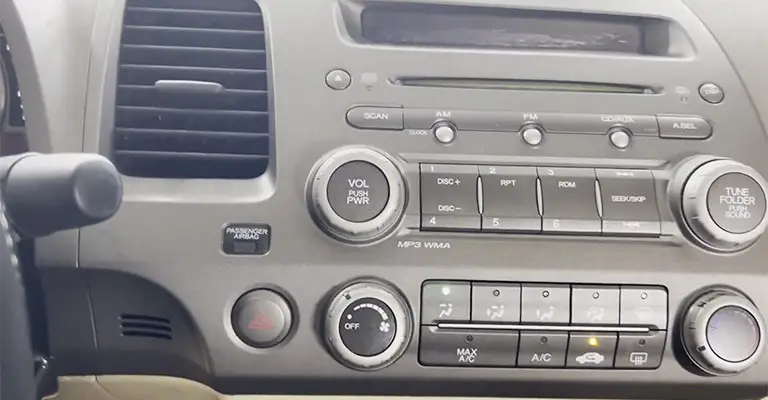
Why Does My Car Ac Keep Turning On And Off?
If you are noticing your car AC is frequently turning off and on, it may be experiencing short cycling. This indicates that the ac system in your car runs through with a system or a time.
When the cycle is broken, you see your car AC behaving abnormally. Here are some possible causes for your car AC to have a short cycle,
A Dirty Air Filter
If the air filter in your car is filthy with dust, and dirt, or clogged with other things, this will affect your car’s ac system. A blocked air filter will prevent your car’s ac system from functioning properly.
Eventually, it will lead the coils inside to freeze up. As a result, ac will keep turning up prematurely.
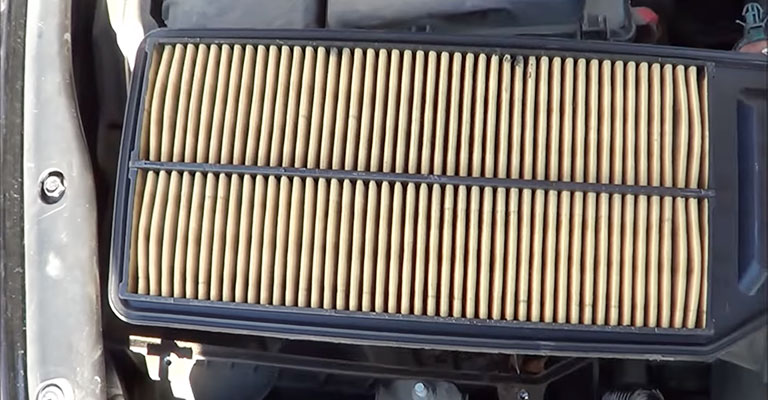
Thermostat Problems
A thermostat is the center of the entire ac system in your car. If the thermostat is at fault, it will create problems like turning ac on and off frequently.
For fixing the thermostat, you may have to secure its location, replace with new ones or change the batteries, or restart it simply. Because the location of the thermostat is also a serious issue for functioning properly.
A Leak in the AC System
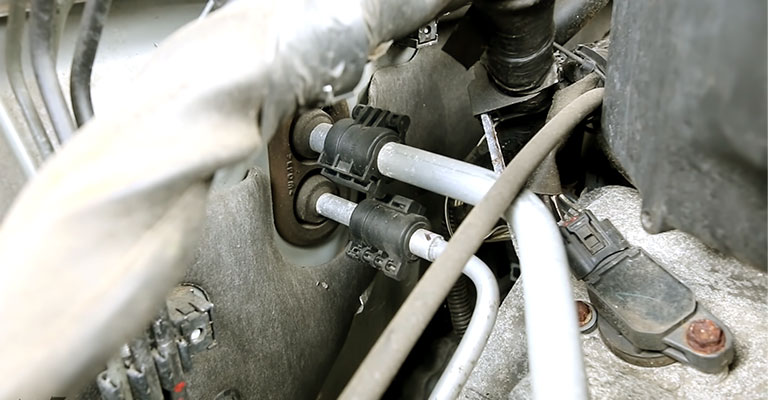
A leak in your car’s air conditioning system will make the temperature cool. The refrigerant and the moisture in your ac will create a type of acid, which will damage the air hoses, seals, and valves.
As a result, the ac will keep turning off and on. When you notice a yellow-green liquid leaking from under your vehicle that is a sign you have a refrigerant leak.
Lack of Freon or Too Much Freon in Line
If there is a lack of Freon in your car, it will shut your car ac on and off repeatedly. The same thing happens when there is too much Freon in your car system.
Blown Fuse
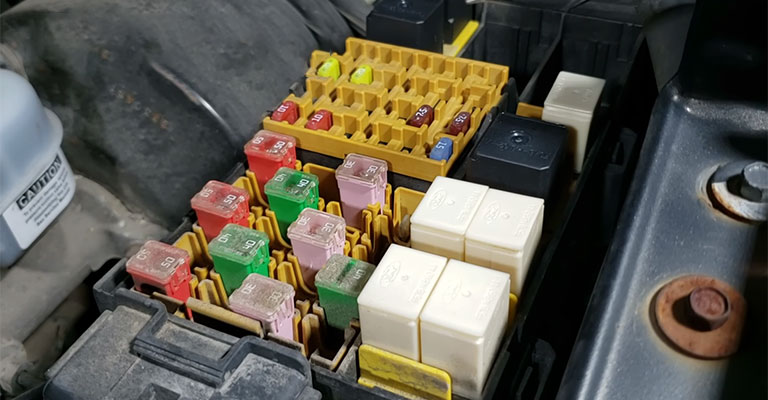
If there is a blown fuse or other electrical issues, your car’s air conditioning will turn on and off from time to time. If you do not solve this issue, thus your car’s AC will be more damaged.
Bad Relay
Relay is the component of your car’s electrical system. A bad relay will cause the car’s air conditioning system to shut down frequently.
Faulty Blower Motor
If the blower motor is malfunctioning, the air conditioning system in your car will also malfunction; such as short cycling.
Blocked Air Intake
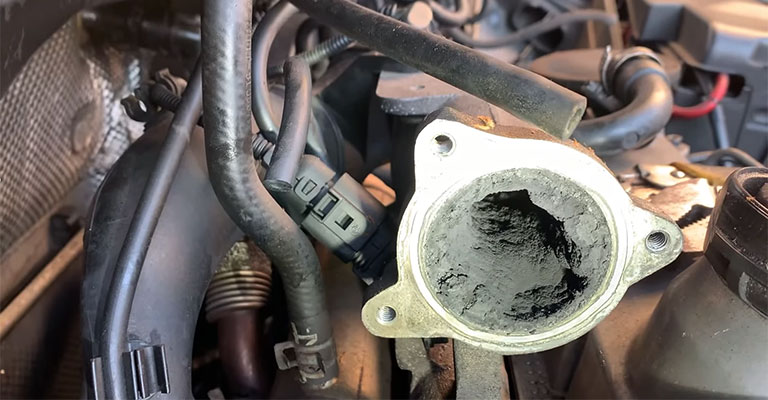
A blocked air intake can cause frequent on and off of your car air conditioning. When this issue occurs, the condenser will overheat because it is not getting enough cool air to function properly.
Damaged Belts or Hoses
Over a pressurized system, too much Freon, or refrigerant leaking can damage your car’s ac belt or hose. As a result, damaged hoses cause short cycling in your car’s ac system.
Damaged Cooling Fans
Sometimes, debris, dirt, or electrical problems can lead to the cooling functions being damaged. Moreover, your cooling fans can also get broken over time. As a result, the AC in your car can keep turning off and on.
Bad Compressor

A bad compressor is one of the reasons for a car’s ac short cycling. This happens when the cooling fans are broken or there is a malfunction in the system pressure from a lack of Freon.
Bad Condenser
The condenser’s job is to collect heat from the inside of the engine and transfer it to the outside atmosphere. If the condenser is not functioning properly, your car’s AC will start to turn on and off often.
Fan Cycling Switch Malfunction
Fan cycling malfunction can happen when the fan fails to turn on, or the fan switch is stuck. This can lead to the malfunction of the car’s ac system.
How to Stop and Prevent Short-Cycling
Basically, you have to schedule maintenance regularly. Thus, you can prevent your car’s air conditioning from turning on and off issues. Here are some tips and suggestions for your car to prevent and stop it from turning the AC on and off frequently.
- Clean the air filter: Check your air filter regularly and change it if it has been blocked with dust and debris.
- Check thermostat location: Check the thermostat location and try to place it in a suitable location.
- Check refrigerant levels: Check your car’s refrigerant levels regularly. Whether it is at a low level or it is leaking or not. If you notice any leak, call the professionals for fixing the problem.
- Replace the fan-cycling switch: if your fan-cycling switch is malfunctioning, replace it with a new one to stop short cycling in your car ac.
- Check the compressor: A bad compressor is one of the causes of short cycling. Therefore, give your car a professional check and replace the compressor if you have to.
- Check the electrical parts: Give regular checks by professionals in your car for checking the electrical parts in your car. Whether the car has blown fuses, broken hoses, or any other problems. Then you can fix them to prevent short cycling in your car’s AC
- Damaged Cooling Fans: Replace your cooling fans if they are damaged or broken.
- Recharge your car: when your car lacks Freon, you need to recharge it so that it does not shut down your car ac repeatedly.
FAQ
Qu 1: Does low coolant affect AC?
Yes, Low coolant can influence your car’s AC. That is because the coolant is what keeps your radiator and other internal parts of your Air Cooler working correctly.
If there is not enough fluid in the system, it will overheat and potentially fail to keep your car or truck at an ideal engine coolant temperature. Therefore, low coolant affects the AC of your car.
Qu 2: What happens if the car AC is overcharged?
It can seem counterintuitive, but too much refrigerant in your car’s AC system can create too much pressure and heat. This can be the reason why your car is now blowing out hot hair.
If this problem is left unaddressed, an overcharged AC system in your car can damage the AC compressor. So, check your car AC, before overcharging.
Conclusion
Even if you notice these short cycling problems in your car’s AC, take your car to the service center and get them checked by car professionals. Ignoring short cycling issues can cost your car more damage to your car system in the future.
Leave a Reply